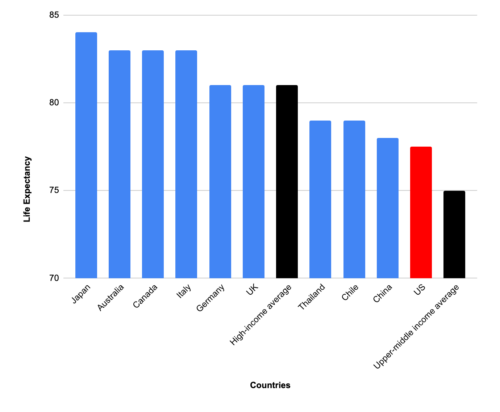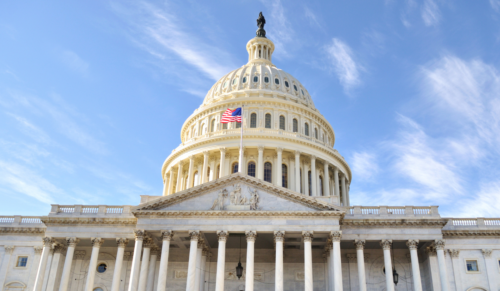Election Watch: All Eyes on Supreme Court, Obama Pushes GOP on Immigration
By: / 06.22.2012
 This week’s skirmishing in the presidential campaign revolved around the president’s immigration initiative and preparations for the Supreme Court’s decision on the Affordable Care Act, due to be handed down next week.
This week’s skirmishing in the presidential campaign revolved around the president’s immigration initiative and preparations for the Supreme Court’s decision on the Affordable Care Act, due to be handed down next week.
The executive order (technically issued by the Department of Homeland Security) offered the children of undocumented workers a two-year, renewable immunity from prosecution if they had entered the country prior to the age of 16 and are currently under 30; have a high-school diploma or GED or a record of military service; and have no serious criminal record. It’s basically a “Lite” version of the DREAM Act, which Obama also supports, in that it provides no path to citizenship. And most importantly, from a political point of view, the administration initiative is very close to what Sen. Marco Rubio (R-Fla.) has reportedly been working on in the form of legislation that could free Republicans (and the Republican presidential candidate in particular) from the taint of being hostile to any remedial action to help children here illegally.
Having preempted any GOP move in the direction of a more tolerant position on immigration, Obama left many conservatives sputtering in rage at what they called an “illegal” executive action (nativist champion Rep. Steve King (R-Iowa) immediately filed suit to have it stopped), and left Rubio with little to say other than complaints that Obama had provided temporary relief while “poisoning the water” for a permanent, legislative “solution.”
Obama’s timing was either brilliant or fortuitous. With polls showing widespread support for his initiative among Hispanics (who already supported Obama over Romney in virtually every poll by a two-to-one margin), Romney faced a major Hispanic audience yesterday (the National Association of Latino Elected Officials) and declined to soften his position on immigration, other than to repeat his support for immunity from prosecution for undocumented immigrants who served in the military (sort of a micro-mini DREAM Act as compared to the Obama/Rubio DREAM Lite). Republican strategists are reduced to hoping that the backlash against Obama’s action among “white working class” voters will offset any consolidation of Hispanic support. They also note that Hispanics are not a major electoral bloc in many of the major battleground states; in the big battleground state with a large Hispanic population, Florida, the majority of Hispanic voters are Cuban-Americans or Puerto Ricans, who are relatively uninterested in immigration issues.
The chattering classes in both parties spent much of this week angling for rebounding position in anticipation of the Supreme Court’s decision on ObamaCare. A total invalidation of the ACA (still considered unlikely by most Court-watchers) would be a large substantive setback for Democrats, but would also greatly increase the pressure on the GOP to come up with “replacement” legislation—difficult because there is substantial public support for individual provisions the GOP does not actually support (e.g., “guaranteed issue” and “community rating” requirements for private insurers), and because some conservatives are opposed to doing anything on this front.
The more likely outcome of a decision striking the individual mandate but upholding the rest of the legislation will create a murky situation, substantively and politically. Without action to repeal the popular private insurance reform provisions, health care premiums might rise significantly for new enrollees, which would make it tougher for Republicans to attack the premium subsidies (with reach well into the middle class) that compose a big part of ACA’s costs. Most likely, Republicans would attack the big Medicaid expansion that accounts for nearly half the original bill’s coverage expansion, since they are already committed as a party to the Ryan Budget, which turns Medicaid into a “block grant” and ratchets down federal funding rapidly. Meanwhile, depending on public reaction to the post-Supreme Court situation, Democrats might try to find a constitutional substitute for the mandate, such as a “tax” or “fee” imposed on those eligible for but refusing to purchase insurance.
If, of course, the Court upholds the ACA, the status quo ante would prevail, though intense conservative disappointment might distract Republican pols from their monomaniacal focus on macroeconomic indicators.
Speaking of distractions, the suddenly-exploding dispute between House Republicans and the administration over House Oversight Committee chairman Darrell Issa’s (R-Calif.) demand for thousands of documents associated with the failed “Fast and Furious” gunwalking operation is creating a toxic standoff, with the president asserting executive privilege over the documents and the House poised to pass a contempt of Congress resolution next week aimed at Attorney General Eric Holder. Though of immense interest to conservative activists, “Fast and Furious” is a virtual mystery to the broader public, and the House leadership’s brinkmanship is another sign of the GOP’s highly selective adherence to the party/Romney mantra of an exclusive focus on the economy.
Photo credit: Jan Seifert






